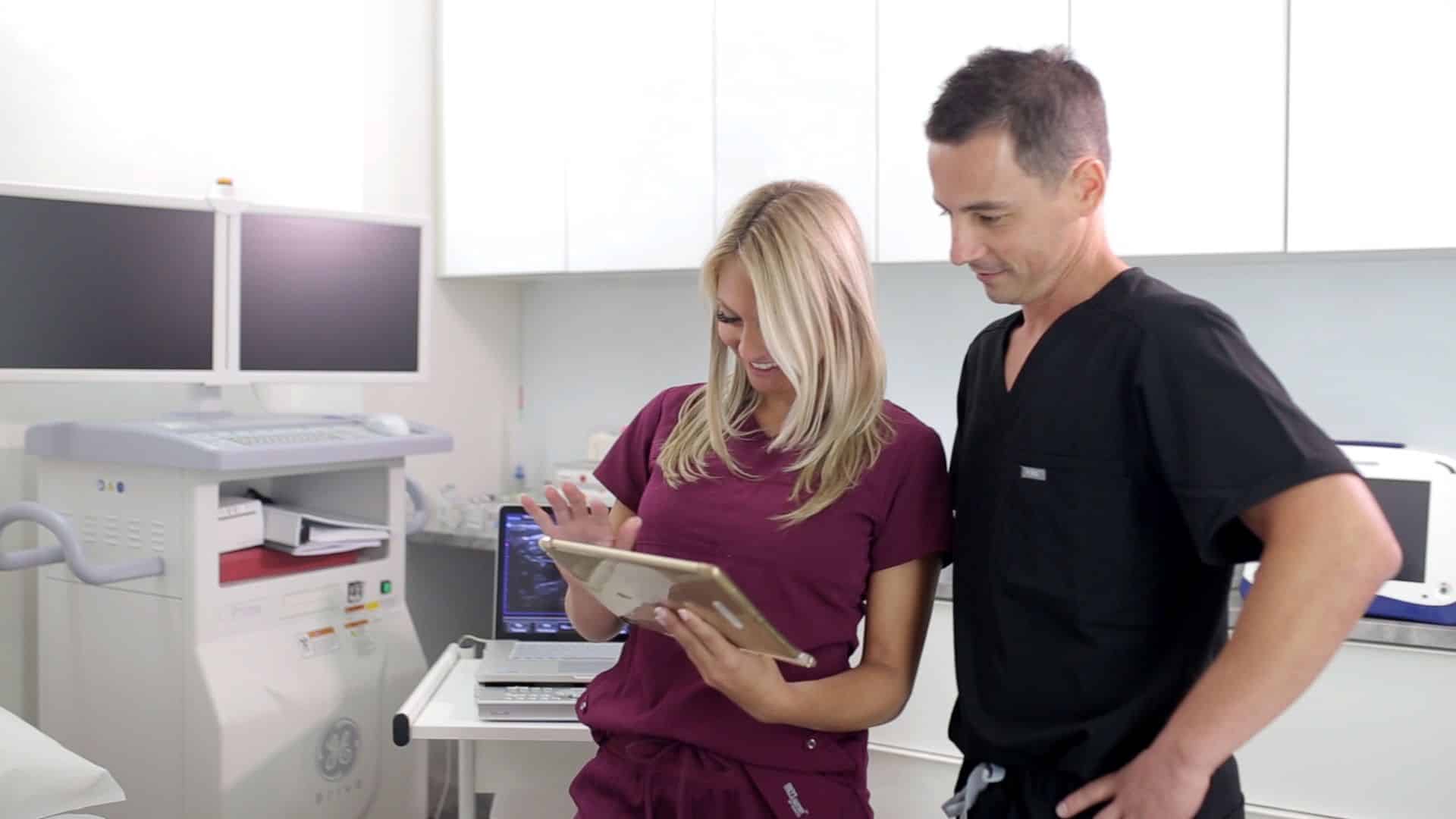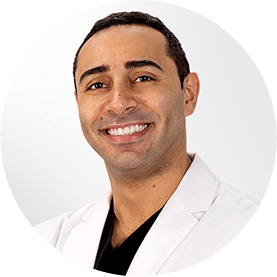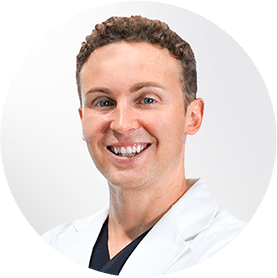What Is the Best Sciatica Pain Treatment near Me in Hackensack?
July 13, 2021
Dr George Hanna Discusses 5 Sciatica Treatment Options That Don’t Involve Surgery
If you are suffering from back pain, you know how much of an impact it can have on your everyday life. Sciatica pain develops in the lower back but can extend to your hips and legs as well, causing not only discomfort but also numbness and weakness of the affected regions. In time, this can limit your ability to perform everyday tasks such as walking, sitting, driving, and working out.
If you suddenly start to experience pain in the lower back, there is a big chance something is bothering your sciatic nerve. Injuries, poor posture, and certain back conditions can put additional pressure on the sciatic nerve, causing it to hurt until the inflammation is reduced. In most cases, these symptoms will alleviate with over-the-counter medicine and a bit of care, but it is always recommended you check in with your pain specialist and describe your symptoms to them, to make sure you are not doing something that can hurt your back.
If you are looking for sciatica pain treatment near you in Hackensack, New Jersey and you fear surgery may be the only option, you are not alone. Most patients that come to our clinic expect surgery to be the go-to recommendation, but the board-certified sciatica doctors at Pain Treatment Specialists are always happy to explain that there are plenty of minimally invasive treatment options that can help with pain management and don’t require you to go under the knife.

Sciatica Treatment Option #1 – Physical therapy
Physical therapy can be prescribed as a standalone treatment for sciatica, or to accompany other treatment methods and aid the recovery process. It usually involves a series of stretches and exercises meant to strengthen the core and can be performed either at home or under the supervision of trained physical therapists.
Typically, physical therapy should help you achieve the following:
- Strengthen back muscle to provide additional spinal support
- Improve core strength
- Improve flexibility and stretch tense muscles
- Encourage blood flow
In some cases, your doctor may recommend resting for a few days, but as soon as the resting period is over, you should start incorporating light exercise into your routine.
Sciatica Treatment Option #2 – Medication
The first piece of advice you will receive when dealing with sciatica is to pop an ibuprofen and wait for it to pass. For many people, this works wonders and they can get back to their pain-free life in a matter of days, but if over-the-counter medicine is inefficient, your sciatica doctor will prescribe a more viable option.
Some examples of medication that is usually prescribed for acute and chronic pain include:
- Prednisone and other oral steroids
- Ibuprofen and nonsteroidal medicine
- Amitriptyline and other tricyclic antidepressants
- Oxycodone or other opioid analgesics (only in small doses)
These medications are either used to alleviate pain altogether or reduce it so that patients can participate in other forms of treatment with minimal discomfort.
Sciatica Treatment Option #3 – Minimally invasive procedures
Minimally invasive procedures are considered by many to be the most effective way to treat sciatica without having to go to an orthopaedic surgeon. They can alleviate pain, aid other recovery methods, and even be used to properly diagnose what is causing the sciatic pain.
When it comes to minimally invasive treatment options, the most effective ones are:
Epidural steroid injections
These injections can help relieve pain caused by conditions such as herniated discs, degenerative disc disease, or spinal stenosis. With this form of treatment, your doctor will look to control the inflammation and reduce the activity of the immune system, to lower the production of inflammatory cells. By being injected into the epidural space, steroids spread to the nerve endings and reduce pain.
Selective nerve root blockers
Root blockers are injected close to the spinal nerve root, just at it exits through the bony openings between the vertebrae. The purpose of these injections is to reduce inflammation and inhibit pain so that the nerve will stop sending signs of discomfort to the brain. The procedure can be performed on multiple nerve roots during one session. Results can vary, with some patients reporting immediate pain relief and others needing more than 4 weeks of treatment to see results.
Sciatica Treatment Option #4 – At-home care
Besides proper medical treatment, your doctor will likely recommend making some lifestyle changes and provide special care for your condition at home. Hot and cold therapy can be effective in reducing inflammation and minimizing pain.
As for lifestyle changes, if you are required to sit for prolonged hours every day, your sciatica doctor may recommend taking frequent standing breaks, to reduce pressure on the lower back and avoid pain. Sleeping on the side, with a pillow between your knees is the recommended position if you want to decompress the nerve, but if you prefer to sleep on your back, place the pillow under your knees instead.
While it may sound counterproductive, the key to dealing with sciatica is to avoid sedentarism. You should develop a light workout routine to strengthen the muscles, provide more support for your spine, and prevent bone degeneration that comes with age.
Sciatica Treatment Option #5 – Chiropractic care
Chiropractic care, also known as manual manipulation, has the purpose to improve spinal alignment and reduce pain. For conditions such as herniated discs and spinal stenosis, chiropractic care has proven to be a very effective treatment method both when being used alone and together with other procedures.
As you can see, surgery is far from being the only treatment method available to reduce sciatica pain. Whether you are dealing with back, shoulder, hip, or neck pain, we are here to help you find a treatment option that allows you to have a pain-free life! Schedule an appointment with us today and we will handle the rest. Book an appointment in one of our conveniently-placed locations: in Paramus on Route 17, near the Paramus Park Mall, in Clifton, NJ, on Route 46 E, past the Ford dealership, and in West Orange, near the Essex Country Club, or at our Woodland Park clinic, on McBride Avenue, right next to Woodland Park Dialysis Center.
Book a Consultation
Scheduling a consultation with one of our pain treatment specialists is one of the best ways to determine the proper solution for pain relief.
Meet Our Team of Back Pain Specialists
All of our Pain Doctors in New Jersey are Harvard Trained and Board Certified in Pain Management

Back Pain Doctor Clifton & West Orange NJ
Dr. George Hanna
Dr. Hanna is a Harvard Trained back specialist in New Jersey and New York. He serves as Medical Director of Pain Management.

Back Pain Doctor Clifton & West Orange NJ
Dr. Laura Lombardi
Dr. Lombardi is a Harvard Trained back pain treatment doctor, currently seeing patients in Clifton and West Orange, New Jersey.

Back Pain Doctor Clifton & West Orange NJ
Dr. Shane Volney
Dr. Volney is a Harvard Trained back treatment doctor seeing patients in the NJ areas of Clifton & West Orange, and in NYC.

Back Pain Doctor Clifton & West Orange NJ
Dr. Michael Nguyen
Dr. Nguyen is Harvard Trained and Board Certified in Pain Management. His pain center accepts major medical insurances and Medicare.

Dr. George Hanna

Dr. Laura Lombardi
Dr. Lombardi is a Harvard Trained back pain treatment doctor, currently seeing patients in Clifton and West Orange, and Paramus New Jersey.

Dr. Shane Volney
Dr. Volney is a Harvard Trained back treatment doctor seeing patients in the NJ areas of Clifton & West Orange, and in NYC.

Dr. Michael Nguyen
Dr. Nguyen is Harvard Trained and Board Certified in Pain Management. His pain center accepts major medical insurances and Medicare.
